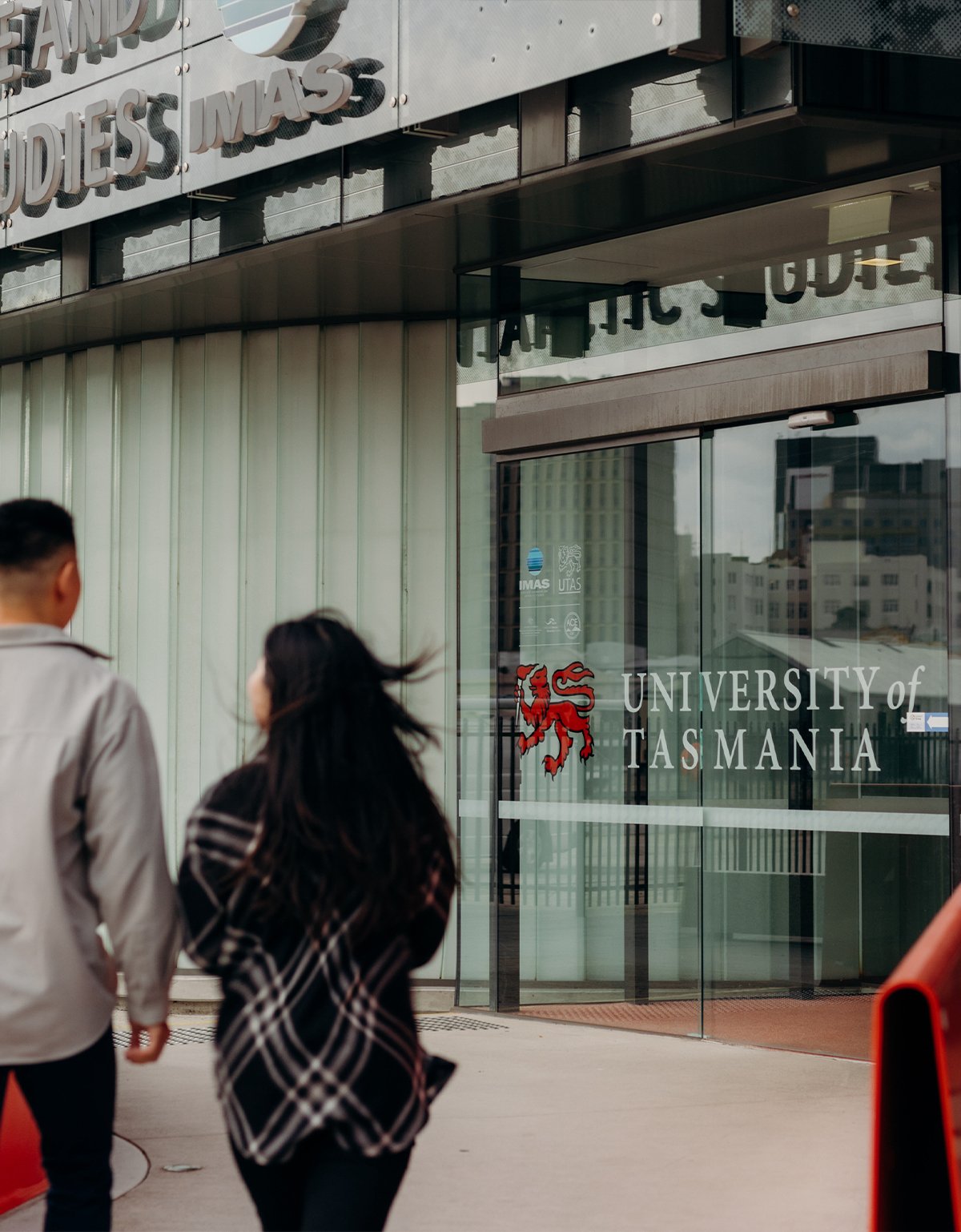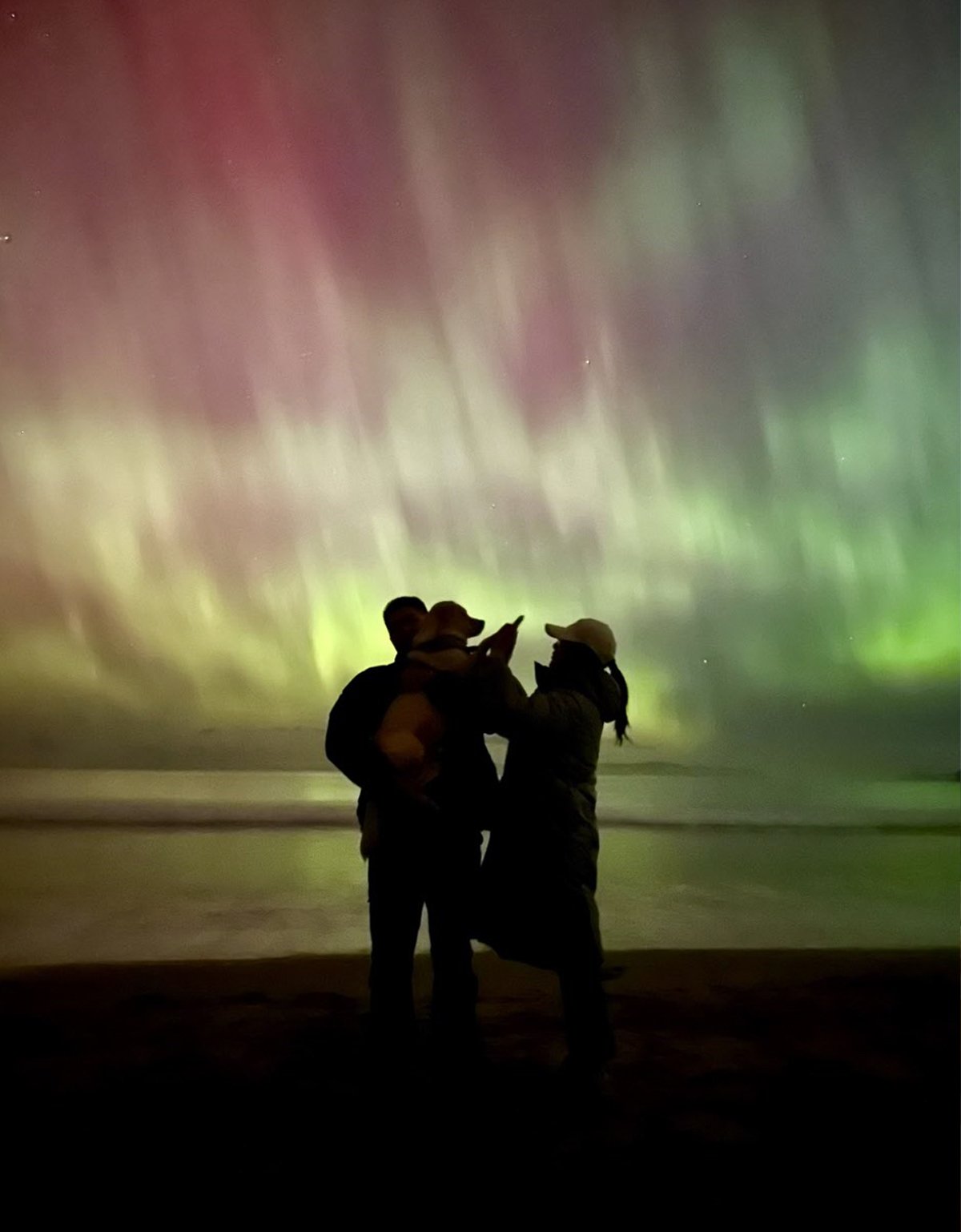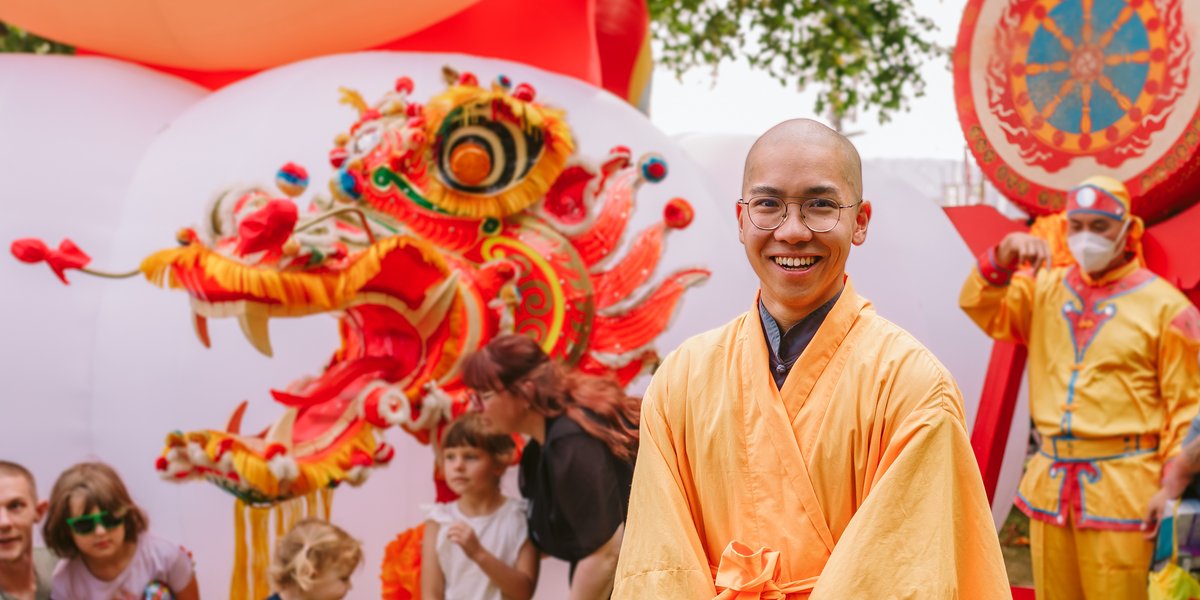Mengzhu (Maggie) Zhang
"Everyone knows about Tasmania and its relationship to Antarctica, that Hobart is one of the five Gateway cities, that leading scientists are here. This is the place to be."
"The first few months were hard. It was so quiet. But I stayed in student accommodation and took part in activities. The first time I went to Mount Wellington something changed. I really started to appreciate it."

In Australia, Tasmania has a reputation for being the coldest state. For those who grew up in genuinely cold places, it’s balmy. They find it charming when Tasmanians complain about the weather.
“In my hometown, in the winter, it is minus thirty,” says Mengzhu Zhang, over a coffee in a Hobart café. “That’s minus three-zero. There is a river near the house where I grew up and it freezes over. People drive on the ice. They cut holes in it and go winter swimming.”
So, proper cold.
Mengzhu, whose English-speaking friends call Maggie, had never heard of Tasmania growing up. Though she did not have a lot of spare time to explore, physically or imaginatively. In her hometown, in Northeast China, school was intense.
“Before I came to Tasmania, I was not an outdoor person. I grew up inland, far from mountains and the sea, and spent most of my time in school.”
When she did have time to dream, it was through English class. An inspiring teacher made it fun and opened a window to the rest of China and the wider world. Mengzhu sought out what she didn’t grow up with, starting with the mysteries of the sea. When it came time to choose a university, she found a joint program in marine and Antarctic studies with the Ocean University of China and the University of Tasmania.


The first two years were in Qingdao, on the west coast of China. Then she moved to Tasmania. “The first few months were hard,” she says. “It was so quiet. There weren’t many indoor entertainments, like giant shopping malls, which I was used to. But I stayed in student accommodation and took part in activities. The first time I went to Mount Wellington something changed. I really started to appreciate it.”
Mengzhu was so taken with aspects of nature she had not grown up with, like mountains and the ocean, she convinced her boyfriend, Jingwei, to join her in Hobart. Soon, Mengzhu was pursuing her PhD at the Institute for Marine and Antarctic Studies (IMAS), while Jingwei was working toward his PhD at CSIRO. “It is a quieter pace of life, more hiking than shopping. And the beautiful views. I live on the other side of the river, so every day I cross the bridge and see the mountain and the ocean.”
It’s more than nature. Mengzhu has found her people.
“Hobart is now my second hometown. There were so many international students, and the professors and researchers from around the world. I had a great, supportive mentor.”
Her research focus was on Antarctic history and the treaty system. And she is among a small club of people around the world who have been to Antarctica. Last year, Mengzhu got a Zodiac license and used her knowledge and passion for Antarctica as a guide. She shared stories and introduced visitors from around the world to penguins, seals, whales, and birds.
And ice.

Everyone knows about Tasmania and its relationship to Antarctica, that Hobart is one of the five Gateway cities, that leading scientists are here. This is the place to be.
Mengzhu now works for an NGO, based in Sweden, called the International Cryosphere Climate Initiative (ICCI). It protects the part of our world that is covered in ice and snow. This is where climate change is having its most immediate and drastic effects, in polar regions like Antarctica and atop high mountains.
“It’s very meaningful,” she says, “because if the ice goes it affects everyone and everything on the planet.”
Working remotely for an NGO based in Sweden, from Hobart, only makes sense because of the reputation of IMAS and the University of Tasmania. “Everyone knows about Tasmania and its relationship to Antarctica, that Hobart is one of the five Gateway cities, that leading scientists are here. This is the place to be.”
Jingwei recently finished his PhD. If he finds a post-doctoral job here in Hobart, they will commit fully and buy a house. Their emotional commitment to Tasmania isn’t only about mountains and the Southern Ocean, weekend hikes and inspiring views.


They deepened their connection to this place through a sweet Labrador cross they named Juju. They took him on walks, on mountains and on the beach. He was the third member of their family, a born Tasmanian and the spiritual foundation of their life here. Until, tragically, he fell ill and the veterinarian discovered an inoperable tumour on his kidney.
“I was in Stockholm, working, when I heard the news,” she says. “I flew home right away and the flight landed early in Melbourne.”
Mengzhu’s original flight was the next morning, but this risked precious hours with Juju. With tears in her eyes, she ran to the airline check-in counter and told her story. In the end, she was able to spend an entire final day with Juju and they invited his dog friends to the veterinary office to say goodbye just before he passed away.
“It was so hard but it reminded us how special life can be.”
If things turn out for Mengzhu and Jingwei, they will find their dream jobs, buy a house, and—in time, after healing—find another Labrador cross. They will become forever Tasmanians.
“It is easy to tell people,” she says, “this is the place to be.”
Mengzhu is featured in partnership with our friends at Study Tasmania.

We worked with southern Tasmanian photographer Jess Oakenfull and southern Tasmanian videographer The Human Story Films for this Tasmanian story.
Read about more Tasmanians

Aki Choi

Prajit Parameswar
